The Boys from Fengkuei (1983)
Directed by: Hou Hsiao-Hsien
Written by: T'ien-wen Chu
Starring: Chao P'eng-chue, Chun-Fang Chang, Doze Niu, Shih Chang
AKA FENG GUI LAI DE REN
Taiwan
AVAILABLE ON BLU-RAY NOW: in the EARLY HOU HSIAO-HSIEN: THREE FILMS 1980-1983 Boxset
RUNNING TIME: 102 mins
REVIEWED BY: Dr Lenera, Official HCF Critic
Ah-Ching and his friends have just finished school in their island fishing village Fengkuei, and now spend most of their time bumming about drinking, fighting and committing petty crime. They get into more and more trouble and eventually three of them decide to go to the port city of Kaohsiung to look for work. There, they manage to find an apartment through Ah-Ching’s sister, then a job in a factory, but soon realise that they were unprepared for the harsh realities of life in the big city and as an adult, Ah-Ching in particular struggling with something that could be love….
The Boys from Fengkuei is the first of Hou’s films that he decided not to disown, and seems to be regarded as the first one in which he was really able to flex his muscles as an auteur, though interestingly he didn’t write the screenplay for it, that being credited to Chu T’ien-wen who became his long-life collaborator, leaving Hou to really begin to develop a specific filming and storytelling style which is no doubt more advanced and refined in later works but which still seems to be well in evidence here. In terms of story the film doesn’t actually offer much that’s different to many others that depict the awkward transition from teenager to adult; it’s the handling that makes it distinctive. It all feels very naturalistic and “real”, and the way the camera likes to just plonk itself down and observe what’s going on without moving so that characters come in and out of the frame gives us the impression that “we” are truly watching what’s going on, really peaking into the daily lives of these people. It’s a mostly quiet, restrained effort, and it’s precisely because of its lack of melodrama that is should strike more than a few chords with those who have experienced the joy and pain of growing up.
Hou and Chu aren’t afraid to initially depict their youths in a poor light. The first third of the film shows them as irritants as – thoroughly bored – they annoy many in their village, after which things then get more serious when Ah Jung cheats on someone’s nephew at gambling, that someone turning out to be a low level gangster. Hou does something rather unique during two fight scenes by keeping the static camera at a distance and refusing to cut; it results in us not seeing all of the action because it often drifts out of the frame. Another odd thing he likes to do is juxtapose images which initially seem rather random until their relevance soon becomes clear. In one scene the boys go to see Rocco And His Brothers [giving me a chance to hear some of the English dubbed version of the film which wasn’t on the Blu-ray release] and are disappointed by it being in black and white. Annie Girardot rubbing her legs onscreen cuts to Taiwanese people playing baseball on an open field, only with the audio of the film still playing over the images. Then we see a man gets struck on the head by a ball, sending him to the ground, then a shot of Ah-Ching watching the movie. Only later do we realise that the sexy image onscreen triggered Ah Ching’s thoughts of his father who was badly injured by a baseball which gave him a hole in his head and brain damage. It’s great stuff without really being very showy – Hou seems to be very much about being low-key and calm.
There’s little romanticism of the countryside here, it depicted as a rather joyless place that just holds no future for its three main teenagers. For a while we follow these wastrels about being nuisances, though one scene which animal lovers will hate which involves them repeatedly cutting a chicken before chasing it around and killing it when it nearly escapes, seems to be some kind of ritual. And the bit where they do a goofy dance in the sea is genuinely joyous and a lovely evocation of youthful freedom and the bonds between these boys – though after living together for a bit in a shack on the beach, one of them is left behind and the other three decide to head for the big city. You really get a sense of the culture shock they must feel, in particular the way that the two sexes intermingle unlike back home in which they seem to spend a lot of time separate. The youths manage to get jobs and a place to live very quickly, but their naivete sometimes lets them down, such as when somebody promises to take them to a porno movie, takes their money and leaves them high up in a deserted building – albeit with a widescreen view of the city. While the others two are off-screen at times but beginning to get into trouble again, Ah-Ching tends to stay at home and we spend much of the time observing the porch of his pretty neighbour and what goes on there.. Small wonder Ah-Ching doesn’t like to go out, because he’s taken to this neighbour whose boyfriend is often absent and who’s also stealing things from the factory where they work to presumably sell. She befriends all the boys and Ah-Ching in particular.
I guess if you’re not really into the film you could say that little seems to happen, the film often choosing to prolong seemingly unimportant occasions like the boys getting home totally plastered. But if you’ve ever been in a situation like Ah-Ching’s, then you may realise that actually a hell of a lot is going on – at least inside his head. We spend some time watching the woman make herself look as nice as possible for when her boyfriend comes home, but this means that when he barely even looks at her and she sets fire to her hair in anger, you really feel her disappointment and sadness. There’s something very sad indeed, yet I think truthful to many, about Ah-Ching’s crush. He just won’t tell her how he feels – in fact he doesn’t even seem to be sure what his feelings exactly are until near the end when it may be too late [if indeed he had a chance in the first place], the change subtly but sensitively shown by actor Doze Niu. In fact one of the most interesting things about this film is the way the characters often choose not to say what’s on their mind, opting to internalise it all instead. Meanwhile the camera just doesn’t like to get in close, and when it does it’s more often on objects rather than people. Characters tend to be at a distance and often deliberately turned away from the camera so we don’t see their faces, just how their bodies are positioned in relation to others and their surroundings. The film is generally quite colourful but there are a few flashbacks of Ah-Ching remembering his father which are so bleached-looking and full of ‘white’ that my eyes almost hurt watching them.
This film was obviously made at a time of considerable social and economic changes for Taiwan, in particular the migration of much of the rural populace to the city. In that respect it’s possibly a film that Taiwanese can relate to more than others, though of course similar things were happening in other countries and its other themes are universal. Acting is sometimes a little uneven but nothing to really complain about. Again, we don’t really get to know the main female character at all, even though Li-Yan Yang does her best in the role to make her a rounded human being. The most distracting thing in the movie is the score which consists solely of well known pieces of classical music. It tends to provides a more obvious, “full on” kind of emotion that the film mostly stays aware from, to be somewhat incongruous with the way that the film is presented in other respects – though saying that, there’s apparently also a version with pop songs which I feel really would ruin much of the deliberate feel that Hou has given his film.
The Boys From Fengkuei is easily the best of the three films in this boxset, but don’t expect a typical ‘coming of age’ drama – yes, it has many of the typical ingredients – but the way in which they are presented is quite unusual. Hou’s very contemplative, distant style gives them considerable freshness, but you probably have to really be in the mood for something like this, otherwise you’ll risk being left unsatisfied by things like the relative lack of interest in plot development. There were a few occasions where even I felt that I wanted to get in just a little bit closer, both visually and emotionally – yet the final scene, set in a market, managed to be rather moving while still avoiding any kind of histrionics. I’ll think of it the next time I see or hear a market crier, that’s for sure.
Looking better than the other two films, The Boys From Fengkuei receives an excellent transfer on to Blu-ray with superb colours and grain management. All three films get a video essay, shots and scenes from the film talked over, and I’ll briefly look at them here as they’re housed on the second disc with The Boys From Fengkuei. Happy New Year has Adrian Martin look at Cute Girl for 15 minutes, examining how it uses and sometimes plays with the conventions of the romantic comedy, and defending it from those critics who consider it of little worth. It did make me appreciate the film a little bit more so job done I guess. Sweet Little Village is of similar length and examines Hou’s growing style in the film, and how it’s the first of his films to really show an interest in daily rituals such as family meals. Martin is clearly very fond of these films and you may be a bit more than you previously were as well after you’ve listened to him. He really is very good. The Boys From Fengkuei gets 24 minutes and Martin covers quite a lot while emphasising the social/economic background and the shooting style.
The three films in this set fascinatingly show the development of a filmmaker’s style, and, while the first two have their major flaws and you can imagine Hou trying to put his own stamp on things and getting frustrated by the constraints of the parameters within which he has to work, there’s still some enjoyment to be had with them. I do consider The Boys From Fengkuei though to be the only major success of the three and for once I seem to be in agreement with many. One thing for sure – I’m certainly intrigued to check out some of this director’s later work, and I reckon that after going through the set you may want to do the same. For a film fan, sometimes there’s nothing like discovering a new filmmaker with a distinctive style and outlook that appeal greatly.
DETAILS
*Limited Edition O-Card (First print run only)
*1080p presentations of all three films, across two Blu-ray discs
*Uncompressed LPCM audio on all three films
*Optional English subtitles
*Video essays on all three films by Adrian Martin and Cristina Álvarez López
*A collector’s booklet featuring a new essay by Philip Kemp

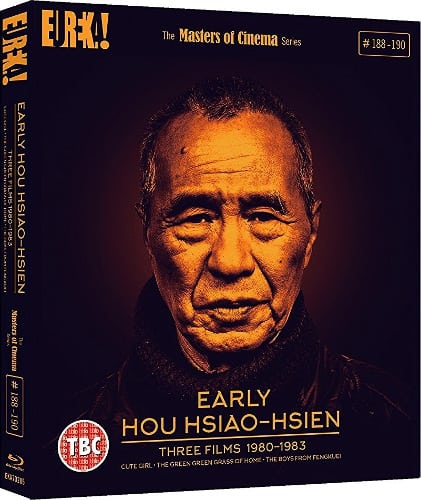
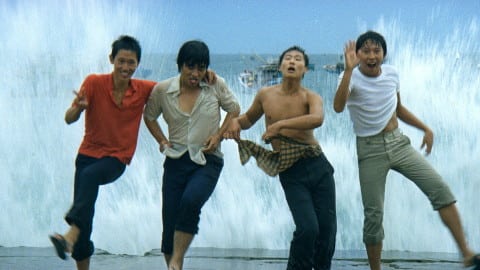
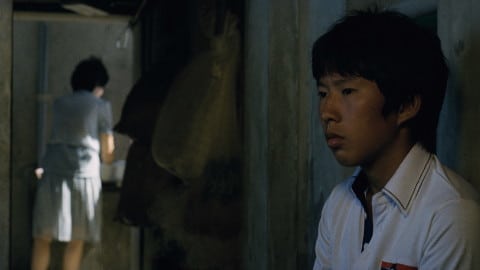



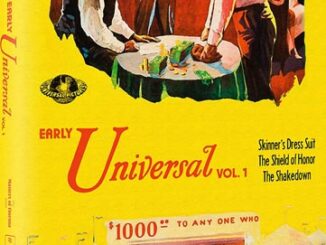
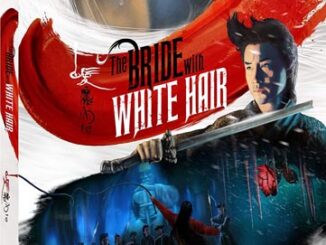
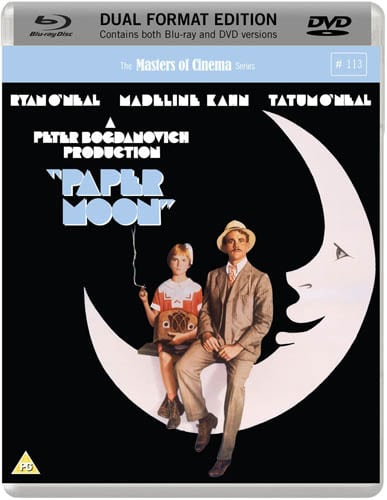
Be the first to comment